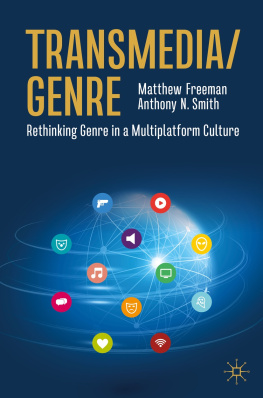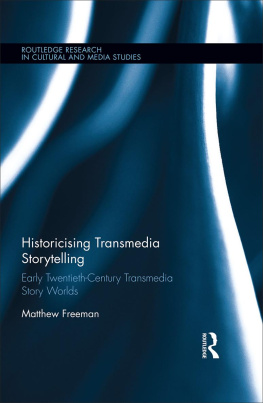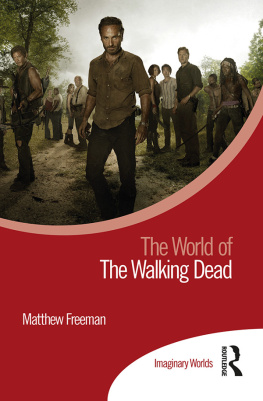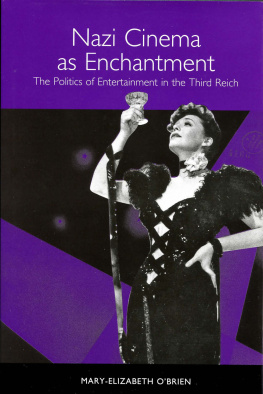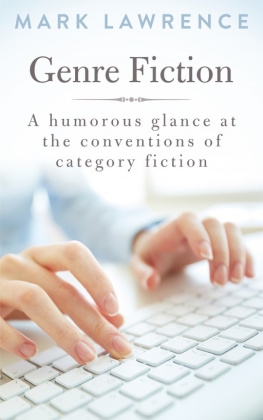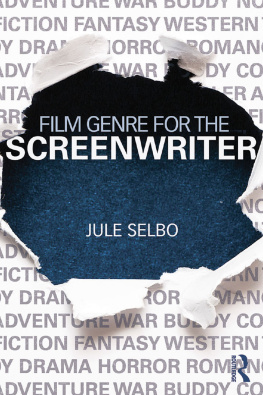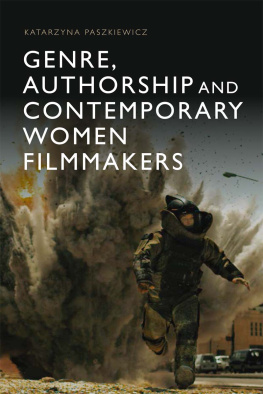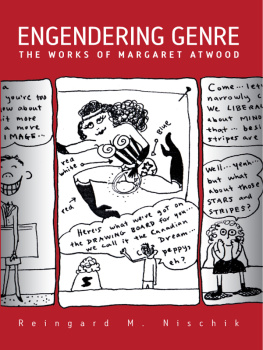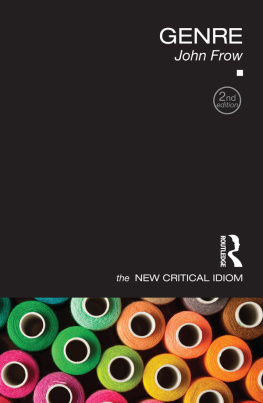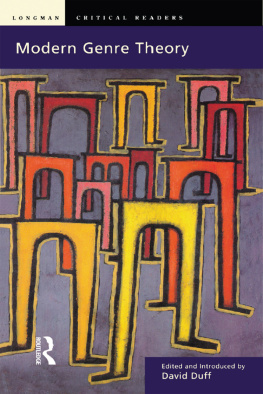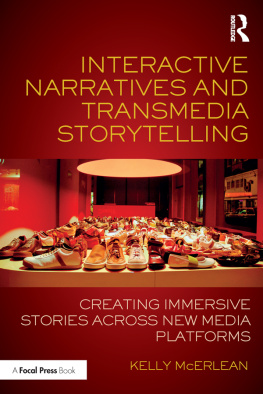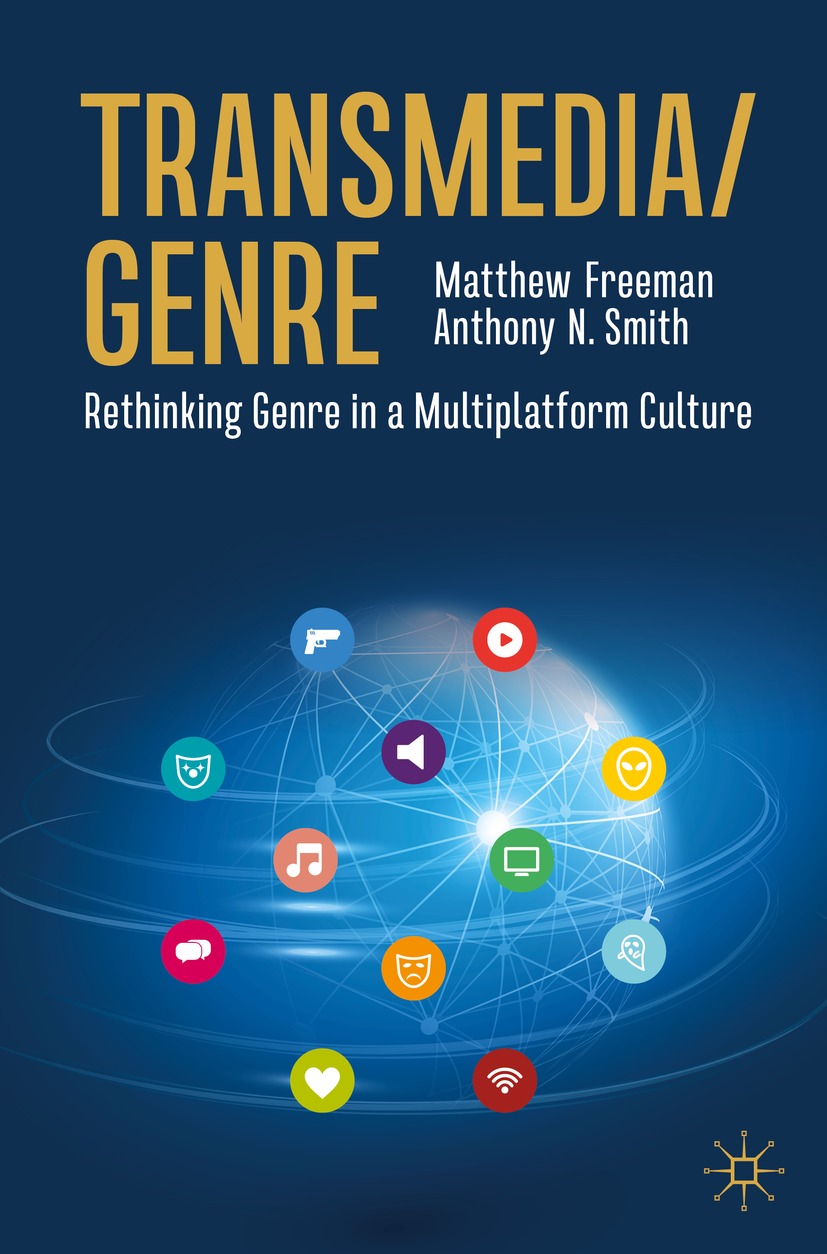Matthew Freeman and Anthony N. Smith
Transmedia/Genre
Rethinking Genre in a Multiplatform Culture

The Palgrave Macmillan logo.
Matthew Freeman
Bath Spa University, Bath, UK
Anthony N. Smith
University of Salford, Salford, UK
ISBN 978-3-031-15582-6 e-ISBN 978-3-031-15583-3
https://doi.org/10.1007/978-3-031-15583-3
The Editor(s) (if applicable) and The Author(s) 2023
This work is subject to copyright. All rights are solely and exclusively licensed by the Publisher, whether the whole or part of the material is concerned, specifically the rights of translation, reprinting, reuse of illustrations, recitation, broadcasting, reproduction on microfilms or in any other physical way, and transmission or information storage and retrieval, electronic adaptation, computer software, or by similar or dissimilar methodology now known or hereafter developed.
The use of general descriptive names, registered names, trademarks, service marks, etc. in this publication does not imply, even in the absence of a specific statement, that such names are exempt from the relevant protective laws and regulations and therefore free for general use.
The publisher, the authors, and the editors are safe to assume that the advice and information in this book are believed to be true and accurate at the date of publication. Neither the publisher nor the authors or the editors give a warranty, expressed or implied, with respect to the material contained herein or for any errors or omissions that may have been made. The publisher remains neutral with regard to jurisdictional claims in published maps and institutional affiliations.
This Palgrave Macmillan imprint is published by the registered company Springer Nature Switzerland AG
The registered company address is: Gewerbestrasse 11, 6330 Cham, Switzerland
Acknowledgements
This book has been a long time in the making. It was originally contracted back in 2017 and promised to focus on emergent transmedia, exploring all those developing and often indie practices of transmedia storytelling that started to materialise around that time. Genre was a core part of this thinking, as it became clear that, even as transmediality was evolving into a whole multiplicity of meanings, practices, applications and understandings, the concept of genre was central to how stories spread across multiple media. Even if few talked about it.
Time went on, our lives went in new directions, and new challenges presented themselves. (If nothing else, Freeman became a fathertwice!). Thankfully, Smith joined the project in 2018, bringing a fresh perspective that dovetailed perfectly with Freemans interest in looking at how the technological and participatory affordances of transmedia entertainments relate to contemporary workings of genre. And it was Smith who really consolidated the vision for the project as something even more ambitious: put simply, this book seeks to understand genre as it works today, theorising a new model for genre in the age of media convergence. This marks a contribution that we are both very proud of, and one that we hope was worth the wait.
Of course, we need to thank and appreciate those people who helped us along the way. As ever, Freeman would like to offer a genuine thanks to Carley, whose love remains utterly unwavering. He also offers a big thanks to his dad for his continued support, especially during a difficult period in his own life, and to Beth Wakefield for her friendship. Smith would like to thank Zo, Lucinda and Aimee for their love, support and good humour throughout the writing of this book. Finally, we both want to thank the editors at Palgrave, who have been nothing but patient and understanding since the very beginning of this project.
Contents
Part I Media Conglomerates
Part II Digital Platforms
Part III Emerging Technologies
The Author(s), under exclusive license to Springer Nature Switzerland AG 2023
M. Freeman, A. N. Smith Transmedia/Genre https://doi.org/10.1007/978-3-031-15583-3_1
1. Introduction or: Why We Still Need Genre
Matthew Freeman
(1)
Bath Spa University, Bath, UK
(2)
University of Salford, Salford, UK
Imagine you are searching through the interface of Netflix , as we assume you must have done at some point or another. You are browsing its catalogue of seemingly unending content. As you do so, it quickly becomes apparent that Netflix s entire navigation principle is based on coded sets of tagsotherwise known as genres. Some basic online research reveals that, as of 2021, Netflix has over 27,000 genres listed on its platform (Lilly ). So, two observations immediately come to mind when browsing Netflix in this way. The first is that Netflix s approach to tagging content under particular genre categories is not in any way bound by medium, production context, country of origin, year of release and so on. Its entire approach to genre is instead something much wider, broader and more diverse than many studies of film or literary genre have considered previously. A quick search for thriller, for example, brings up everything from Netflix Original Before I Wake (2016) to The Silence of the Lambs (1991), both mixed in with television series The Alienist (2018). And the second observation is that by mixing film and television from many eras and production contexts, Netflix s genre tags function as the platforms marketing mechanism, grouping titles together so as to engage certain demographics. Genre, recalibrated for Netflix , creates personalisation out of chaos.
Netflix s use of genre tags may be commonplace and even fairly obvious to describe, but it demonstrates a very important point: that genre, while working differently when viewed from either industrial, technological or participatory perspectives, remains the bedrock of todays transmedia landscape. So says Alison Norrington , Creative Director at StoryCentral Ltd., a transmedia consultancy firm that works globally with clients including the likes of Walt Disney Imagineering, SundanceTV, AMC Networks and FOX International: In this messy, fragmented media landscape, where content is everywhere and so too are our audiences, genre is perhaps the only remaining constant (). Which is all in spite of the fact that genre, at least in academic circles, has largely fallen away in recent decades, precisely at a time when academics need it the most. We are all part of a media convergence age where the meaning-making power of genre is both more important and less stable than it was before, with audiences increasingly fragmented across an ever-diversifying set of platforms and channels. Yet operating complexly within such fragmentation, todays genresoften formed via a set of interconnected, hyperlinked digital platforms that afford highly individualised perspectives on mediaare being shaped and reshaped almost continuously by these different platforms and channels. Each of these genres is thus in constant dialogue and re-negotiation with one another as a result of the extensive transmedia experiences that surround them. And yet as Norrington declared, with digital platform s characterised by their expansive, fragmentary nature, genre is indeed crucial to how we navigate and make sense of todays media landscape, even if the processes underpinning this are not fully understood.

